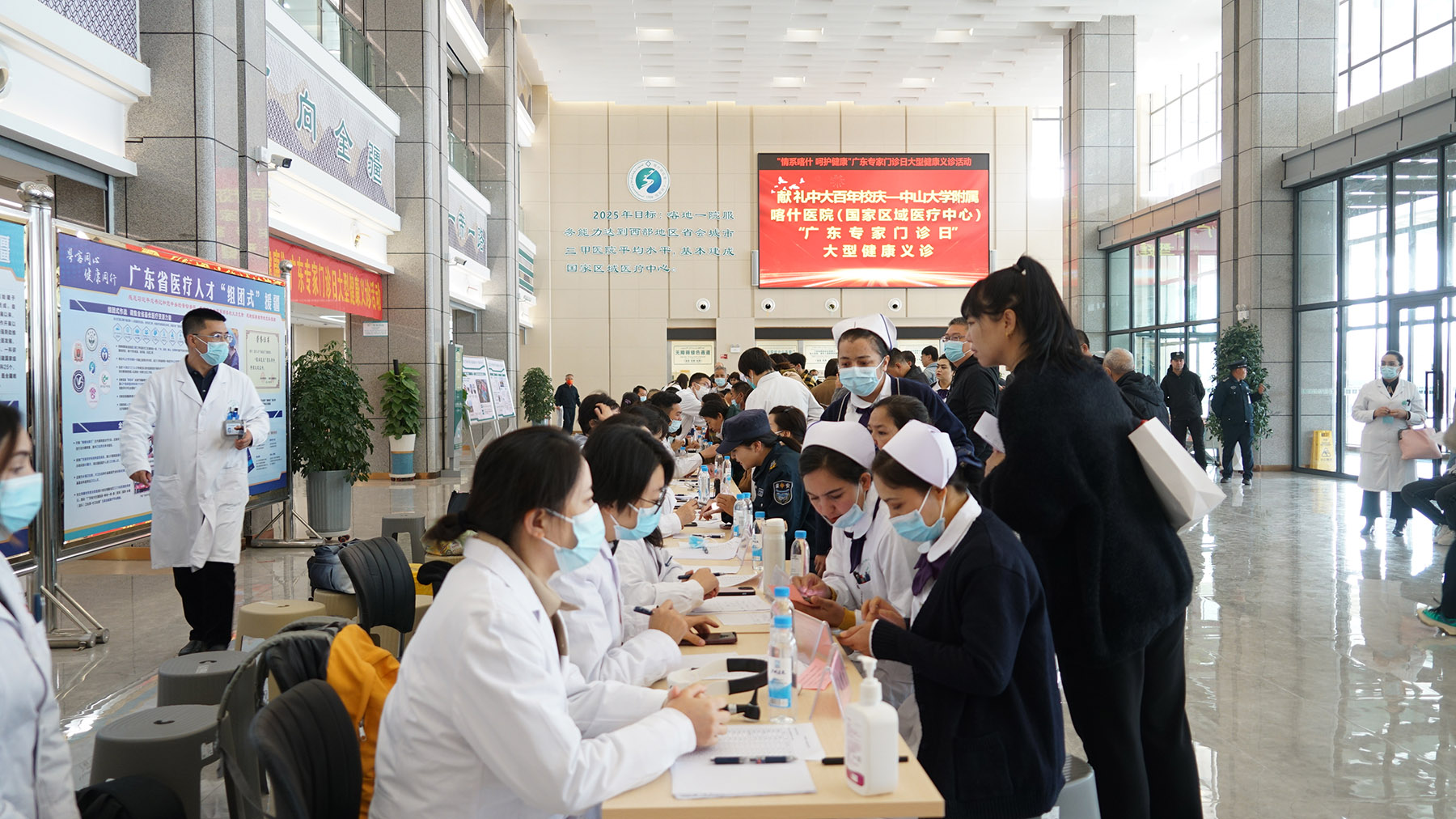Team receives honor as model group for ethnic unity and progress

Xiao Fei said he was very excited to receive the special honor that listed his medical aid team from Guangdong province among the model groups for ethnic unity and progress.
Leader of the Guangdong medical aid team to the Xinjiang Uygur autonomous region, Xiao said the accolade was the result of the combined efforts of his team. "The honor will give the medical team and the hospital more confidence to take root in Xinjiang and serve the people of all ethnic groups," he said.
Xiao, who is president of Kashgar No 1 People's Hospital, which is also known as the Affiliated Kashgar Hospital of Sun Yat-sen University, received the special honor during the National Conference on Commending Models for Ethnic Unity and Progress that was held in Beijing on Sept 27, as the country celebrated the 75th anniversary of the founding of the People's Republic of China.
READ MORE: Guangdong to boost biopharma sector
A total of 352 model groups and 368 model individuals were honored at the event. Xiao's hospital is the only medical institution to receive such an honor in the region.
He said since a new division, or the National Regional Medical Center, opened in September last year, the center has rapidly developed into a comprehensive institution treating infectious diseases and serious and critical illnesses.
He said many of the center's departments — including the departments for infectious diseases, respiratory illnesses, the intensive care unit, cardiology, neurology, general surgery, ultrasound, imaging, nutrition, traditional Chinese medicine and digestion — have entered the trial operation stage.
The center provides 415 beds and receives more than 2,357 emergency visits monthly.
According to official statistics, the number of outpatient visits exceeded 12,000, with more than 5,600 inpatients having been discharged in the first half of the year.
A total of 872 surgeries, including 52 major ones, were performed in the first six months, which raised the region's medical diagnosis, treatment and service level, he said.
Meanwhile, Xiao's team has helped train more than 50 doctors for the local hospitals and more than 7,000 grassroots medical workers.
Located in Kashgar, the hospital radiates into Central Asia to serve patients from countries involved in the Belt and Road Initiative, as Kashgar is a hub of the country's land Silk Road.
Local doctor Gulmira Alim said that under the guidance of the medical experts from the Guangdong medical aid team, her diagnostic ability has greatly improved.
Gulmira said that many local doctors including herself have learned to use advanced methods such as liver biopsy and genetic sequencing to diagnose rare and difficult genetic metabolic liver diseases and develop standardized treatment plans.
"We can provide the patients in the Kashgar area with good treatment prospects even without leaving Kashgar," she said.
Xiao's team has designated every Wednesday as "Guangdong Expert Outpatient Day", arranging for experts from his team to offer free medical services. On Wednesday, the outpatient hall of the hospital is usually filled with people.
Chen Yingbei, director of the center's medical department, said that Guangdong Expert Outpatient Day provides multidisciplinary services, where patients only need to sign up with a single account to utilize the diagnosis and treatment services of multiple experts.
The special outpatient day has provided better medical treatment for people of all ethnic groups in southern Xinjiang, said Chen.
ALSO READ: Guangzhou building biopharma hub
Dinar Ablat, a 58-year-old local patient, previously suffered from a lung disease and occasionally coughed up blood.
"The experts from Guangdong are very skilled and attentive, allowing me to enjoy high-quality medical resources near my home," she said.
Chong Yutian, executive director of the center, said Guangdong's medical aid team is also building the center's multidisciplinary treatment platform, promoting the synchronous improvement and optimization of hardware and software to make it a high-level medical platform that benefits people in southern Xinjiang.
Relying on 5G, artificial intelligence, big data and related advanced technologies, the center has built a smart medical service system, connected with hospitals in Guangdong. It has optimized its medical services to become an international remote consultation center, bringing high-quality medical treatment to patients from countries involved in the BRI.


